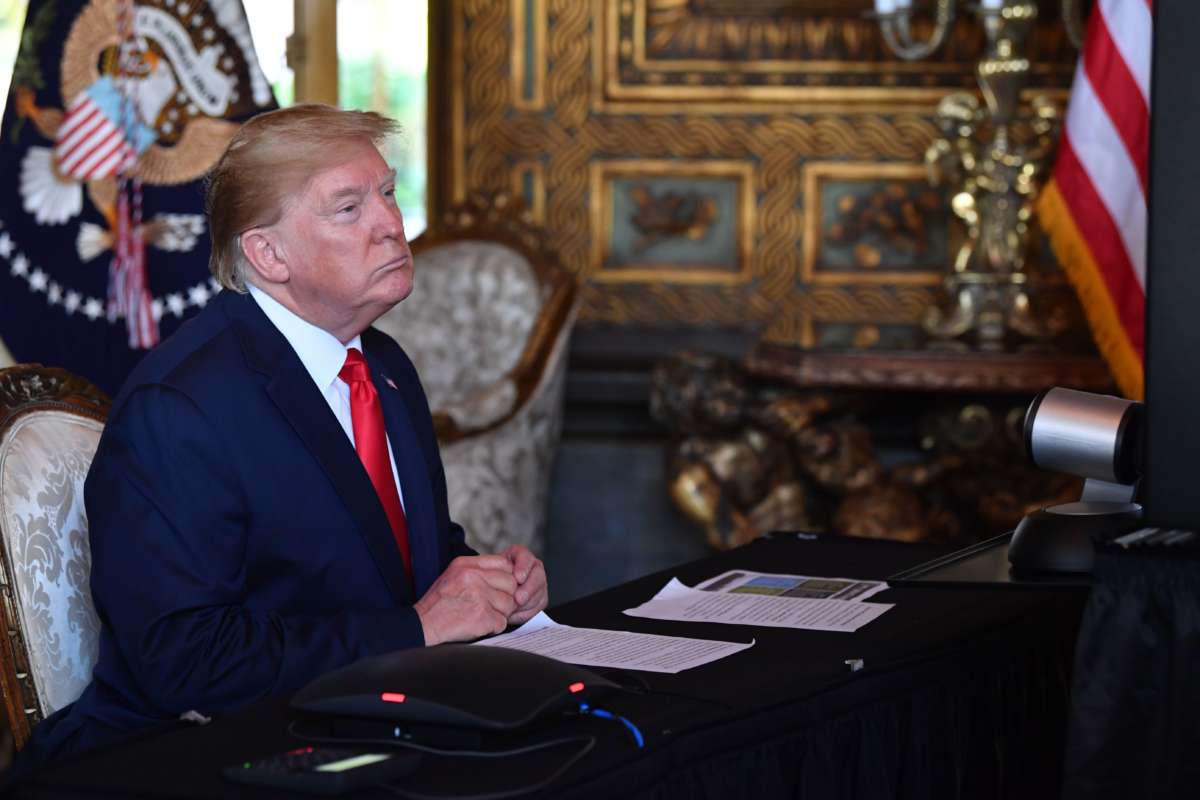The Trump administration’s assassination of Iranian government official Qassim Suleimani, the leader of Iran’s Quds Force, is a dangerous escalation of violence against Iran at an already explosive time. This reckless move by the administration is likely to set off a series of escalations of violence across the Middle East that could result in all-out war and risk the lives of millions of people.
While both the U.S. and Iran are both escalating the crisis in the Middle East through confrontations on multiple fronts, there is no question that the origins of this crisis are in the Trump administration’s decision to withdraw from the 2015 international nuclear agreement with Iran and then escalate economic and military pressure on Iran.
But the responsibility for this tragedy doesn’t just lie with President Trump. Article 1 Section 8 of the Constitution states that only Congress has the power to declare war, not the president. Congress has had multiple opportunities to assert this responsibility. But in December 2019, Congress struck language from a military policy bill that would have explicitly denied authorization for a war with Iran and would have repealed the outdated Authorization for Use of Military Force Against Iraq Resolution of 2002 (AUMF), which the administration may be using to provide legal cover for this assassination. That same bill authorized $738 billion for war.
In appealing for this language to be stripped from the National Defense Authorization Act (NDAA), the Pentagon briefed members of Congress that the authority may be needed for future military action. Now we know what they were already contemplating.
“Any member who voted for the N.D.A.A. — a blank check — can’t now express dismay that Trump may have launched another war in the Middle East,” said Rep. Ro Khanna, the lead sponsor of the NDAA measure to prevent war with Iran. “Our Congress let our nation down again by failing to stand up against a war in Iran.”
Now, a war in Iran appears imminent. In the United States, Suleimani, Iran’s top general, was considered to be a ruthless killer and the leader of a U.S.-designated terrorist organization. Secretary of State Mike Pompeo said this morning on Fox News that the U.S. had evidence that Suleimani was directed an imminent attack on U.S. forces, but declined to provided evidence. The Pentagon released a statement on January 2, saying, “General Soleimani was actively developing plans to attack American diplomats and service members in Iraq and throughout the region.” In the statement, the Pentagon also blamed him for the attack on the U.S. Embassy in Baghdad that took place earlier this week.
However, we should remember that Suleimani was not a marginal figure who can be separated from the rest of Iran; in fact, he was one of Iran’s top leaders. Ayatollah Ali Khamenei, Iran’s supreme leader, once referred to him as a “living martyr of the revolution.” At the head of the Revolutionary Guards’ Quds Force, he led Iran’s overseas operations, including missions against ISIS in Iraq.
Shortly after Suleimani’s death, Iranian President Hassan Rouhani tweeted, “The great nation of Iran will take revenge for this heinous crime.” Iranian Foreign Minister Javad Zarif also stated, “The US’ act of international terrorism, targeting and assassinating General Soleimani- the most effective force fighting Daesh (ISIS), Al Nusra, Al Qaeda et al- is extremely dangerous & a foolish escalation. The US bears responsibility for consequences of its rogue adventurism.”
Meanwhile, in the U.S., many Democratic members of Congress are criticizing Trump’s actions. Yet now is the time to go further and right the wrongs that Congress has permitted to happen. Beyond condemnation of Trump’s march to war, Congress needs to reassert constitutional war authority and support the full-scale international diplomacy needed to prevent war with Iran. Congress must pass legislation explicitly prohibiting an unauthorized war of choice with Iran.
Democratic leadership in the House should immediately bring the Khanna-Gaetz NDAA amendment, which would prohibit unauthorized funding for a war with Iran, to the floor as a standalone bill. Additionally, the House of Representatives should introduce an Iraq War Powers Resolution to stop further U.S. military participation in these escalating events and vote to repeal the 2002 Iraq AUMF.
The United States can’t simply launch a few airstrikes and kill Iran’s top commander without risking an all-out and unnecessary war with Iran. Congress and the American people must come together to reject this unilateral move by the Trump administration and call for peace. Diplomacy may be difficult and messy, requiring the kind of patience, skill and flexibility that is in such short supply in U.S. leaders today, but it is the only way that can possibly succeed in achieving our aims at an acceptable human, financial and moral cost. The fate of the entire Middle East depends on it.
Join us in defending the truth before it’s too late
The future of independent journalism is uncertain, and the consequences of losing it are too grave to ignore. To ensure Truthout remains safe, strong, and free, we need to raise $44,000 in the next 6 days. Every dollar raised goes directly toward the costs of producing news you can trust.
Please give what you can — because by supporting us with a tax-deductible donation, you’re not just preserving a source of news, you’re helping to safeguard what’s left of our democracy.
